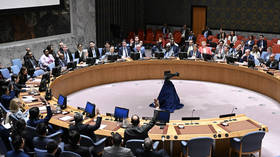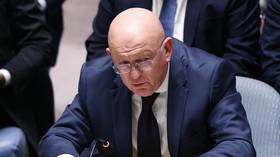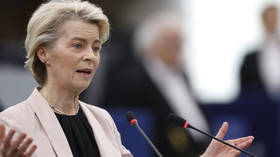Business leaders reject plan to test them for HIV & syphilis

A law due to take effect by the end of the year requiring nearly all foreigners in Russia to be regularly screened for a range of diseases with blood tests, as well as X-rays, will make the country less appealing for talent.
That’s according to a group of Russian business organizations, which shared an open letter to Bloomberg on Monday about the new directive requiring virtually all overseas workers, as well as family members over the age of seven, to undergo quarterly medical examinations for diseases including leprosy, tuberculosis, syphilis and HIV/AIDS.
Screenings by drug therapists, psychiatrists and infectious-diseases experts will be carried out as well as the new requirements within 30 days of entry to Russia.
“It's been a long time since a single legislative act has caused such a huge wave of misunderstanding, frustration and indignation among thousands of foreign managers,” Matthias Schepp, the chairman of the board of the Russian-German Chamber of Foreign Trade told Moscow business daily RBK.
He said that the new requirement, set to come into force from December 29, means that Russia risks losing “much of its attractiveness as a place to work."
Ten business associations, including the US Chamber of Commerce and the Association of European Businesses, opposed the law. The authors of the appeal to the Russian Government asked for highly qualified specialists to forego the screening, as well as residence permit holders.
The condemnation of the law follows shortly after anti-immigrant sentiment in the Russian capital. Last week, the head of Russia’s Human Rights Council, Valery Fadeev, sent a letter to the mayor of Moscow, Sergey Sobyanin, asking him to consider investigating complaints from local residents over signs in Uzbek and Tajik at two metro stations in the city.
The new requirements immigrants in Russia are set to face comes after the Covid-19 pandemic significantly changed the country’s foreign workforce. In December 2020, the Ministry of Internal Affairs estimated that almost half of all immigrants living in Russia had left. Meanwhile, Moscow saw a 40% drop in overseas workers.
Russia has one of the fastest-growing rates of HIV infection in the world, with over 1 million people believed to be living with the virus. The country also had the 11th highest levels of tuberculosis, an airborne bacterial infection which can be acquired by contaminated air droplets from an infected person, in the world in 2013, according to Partners in Health.














